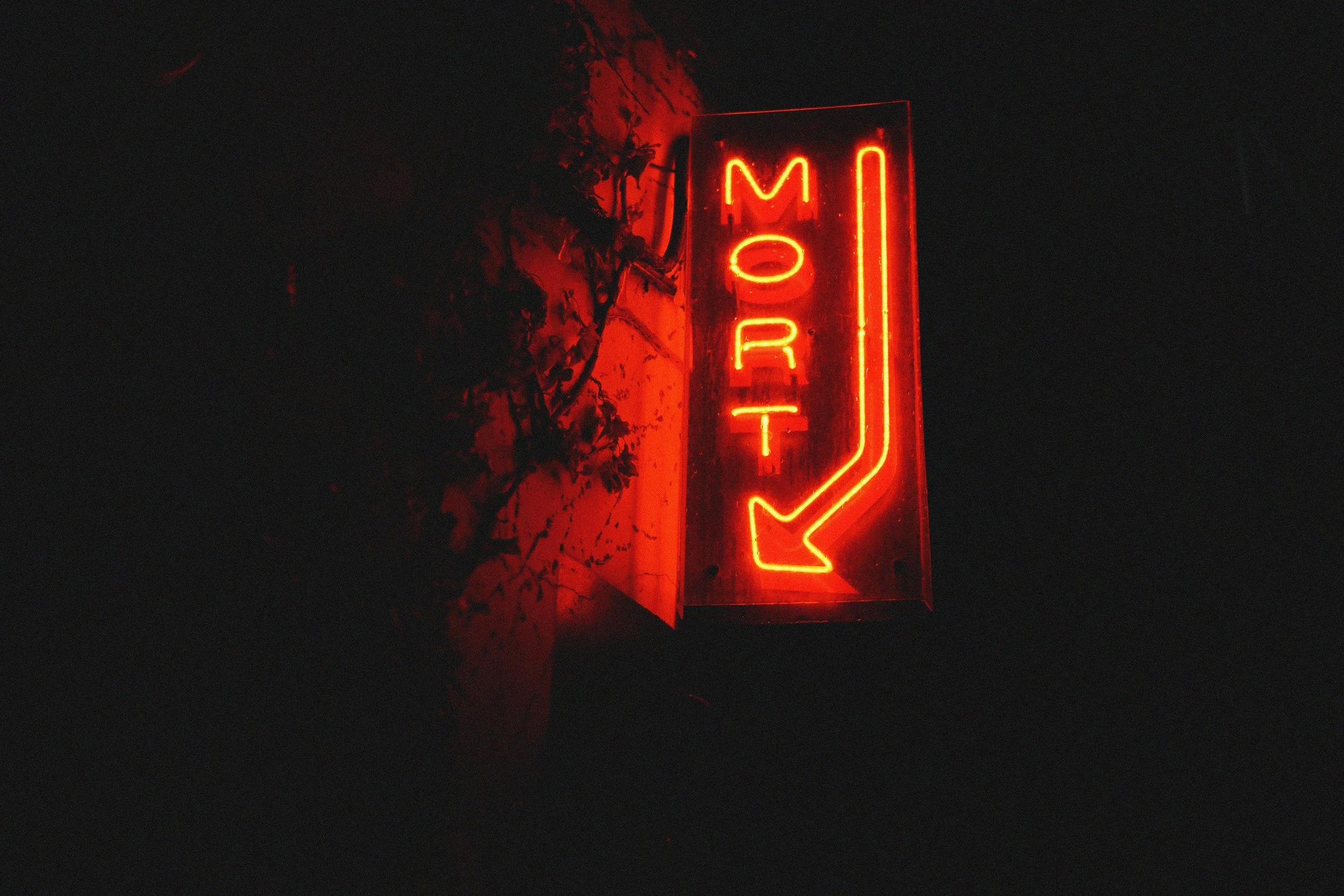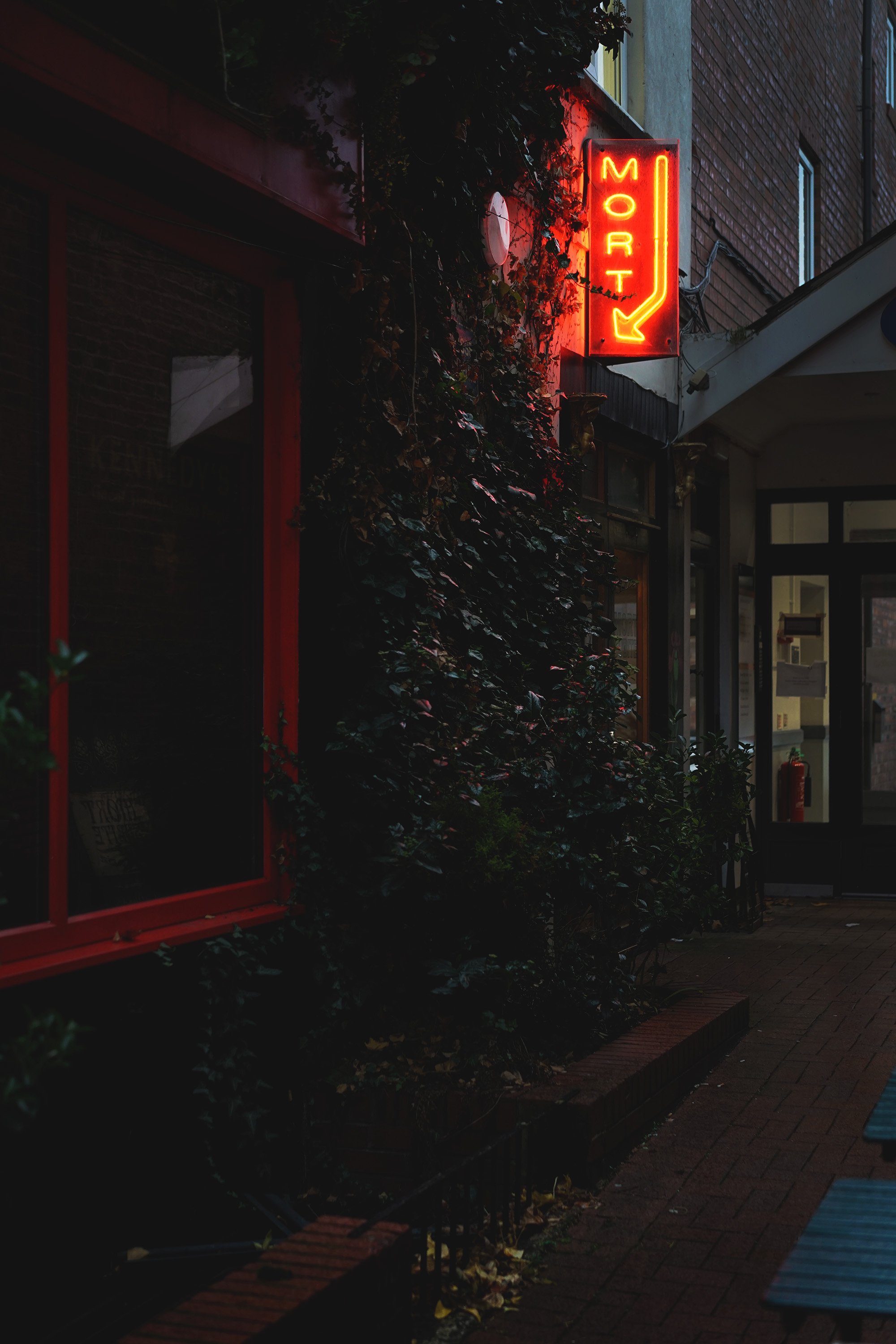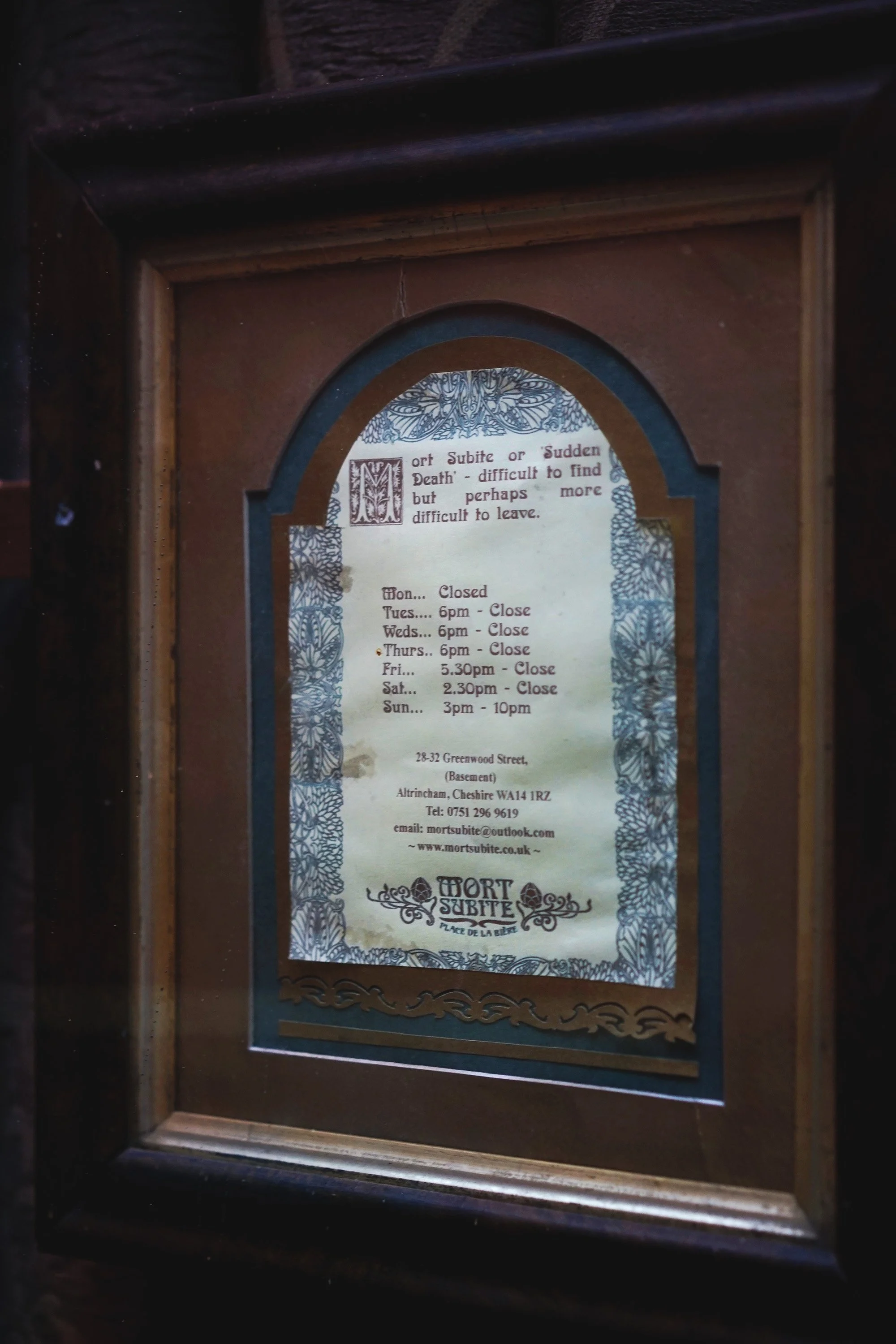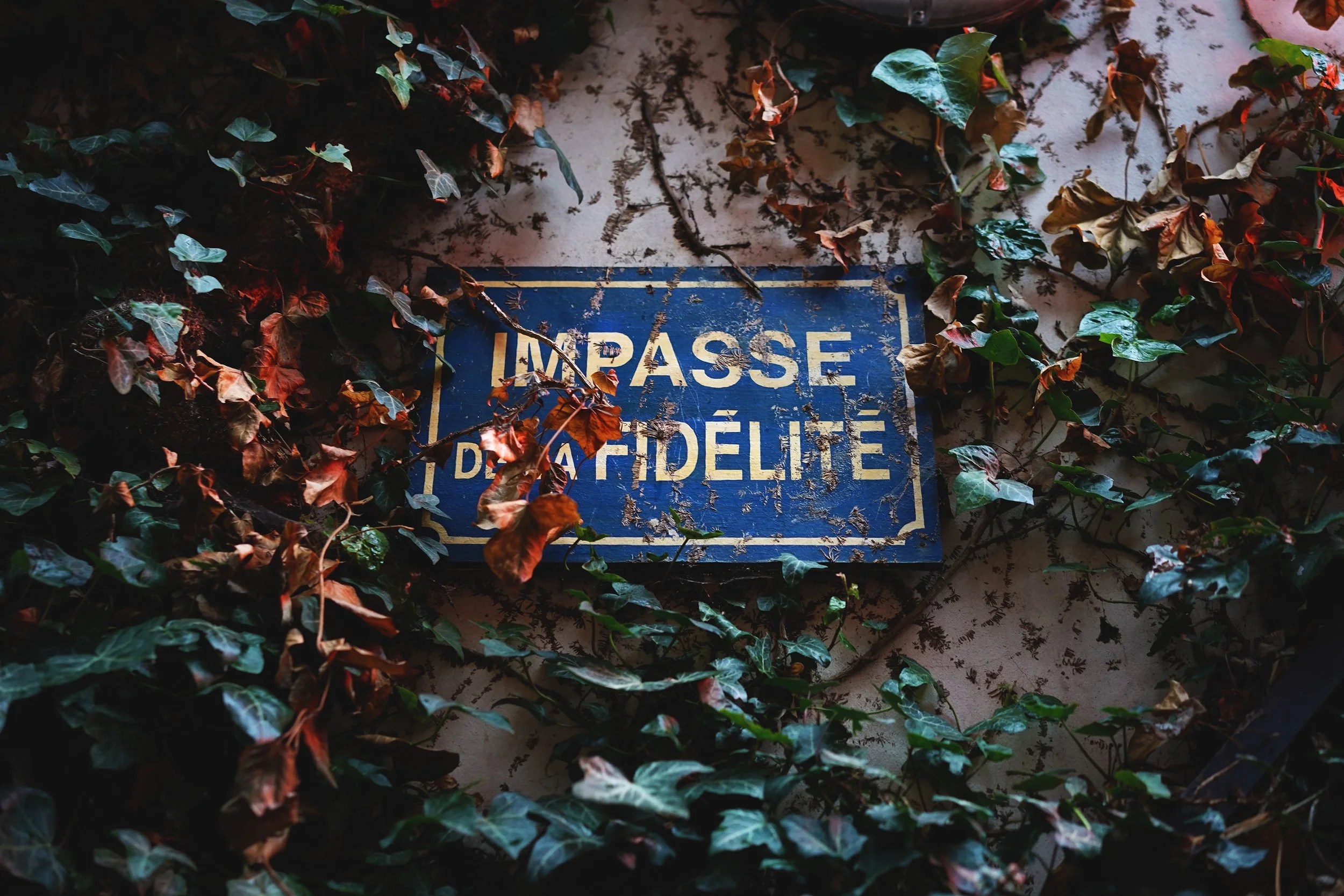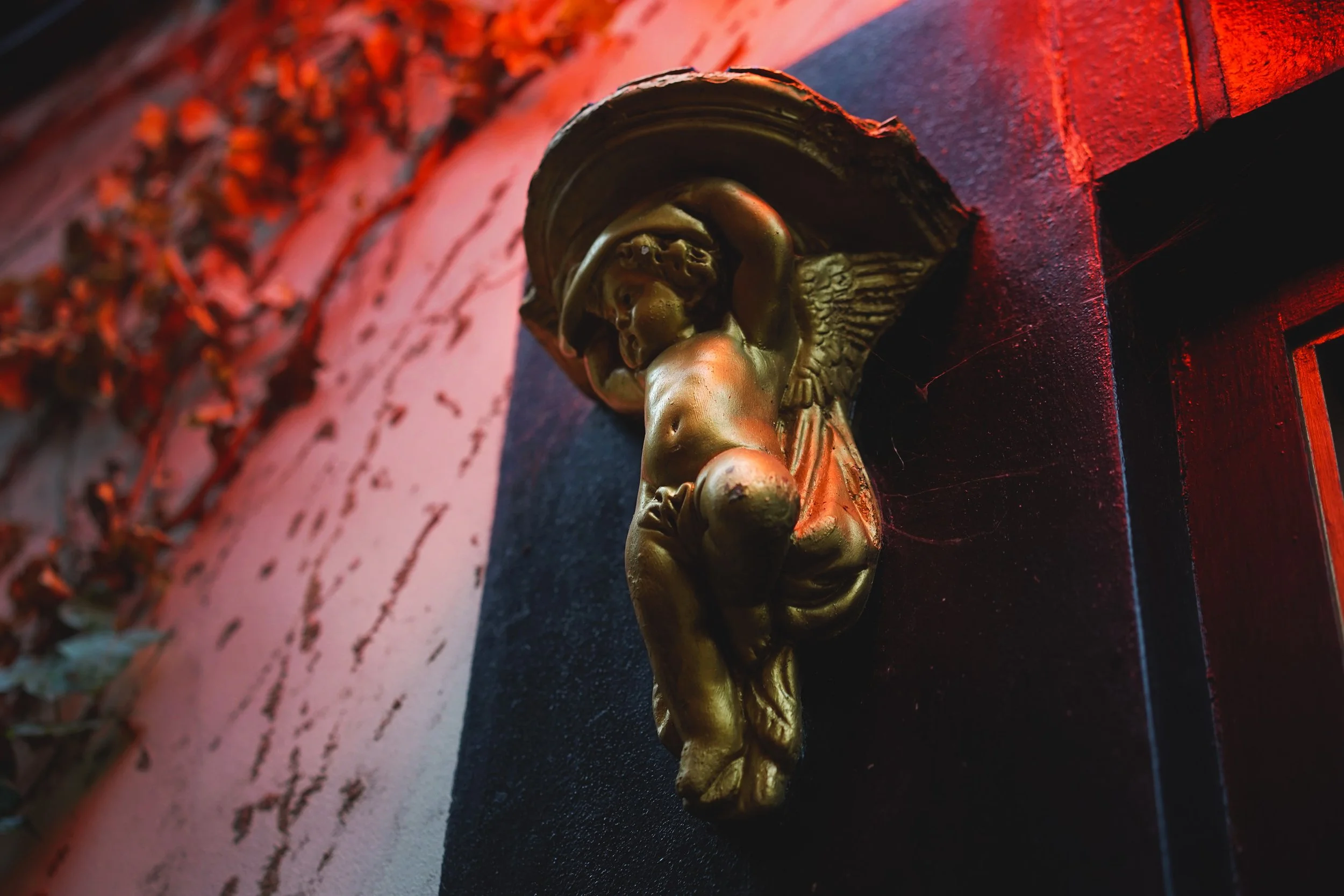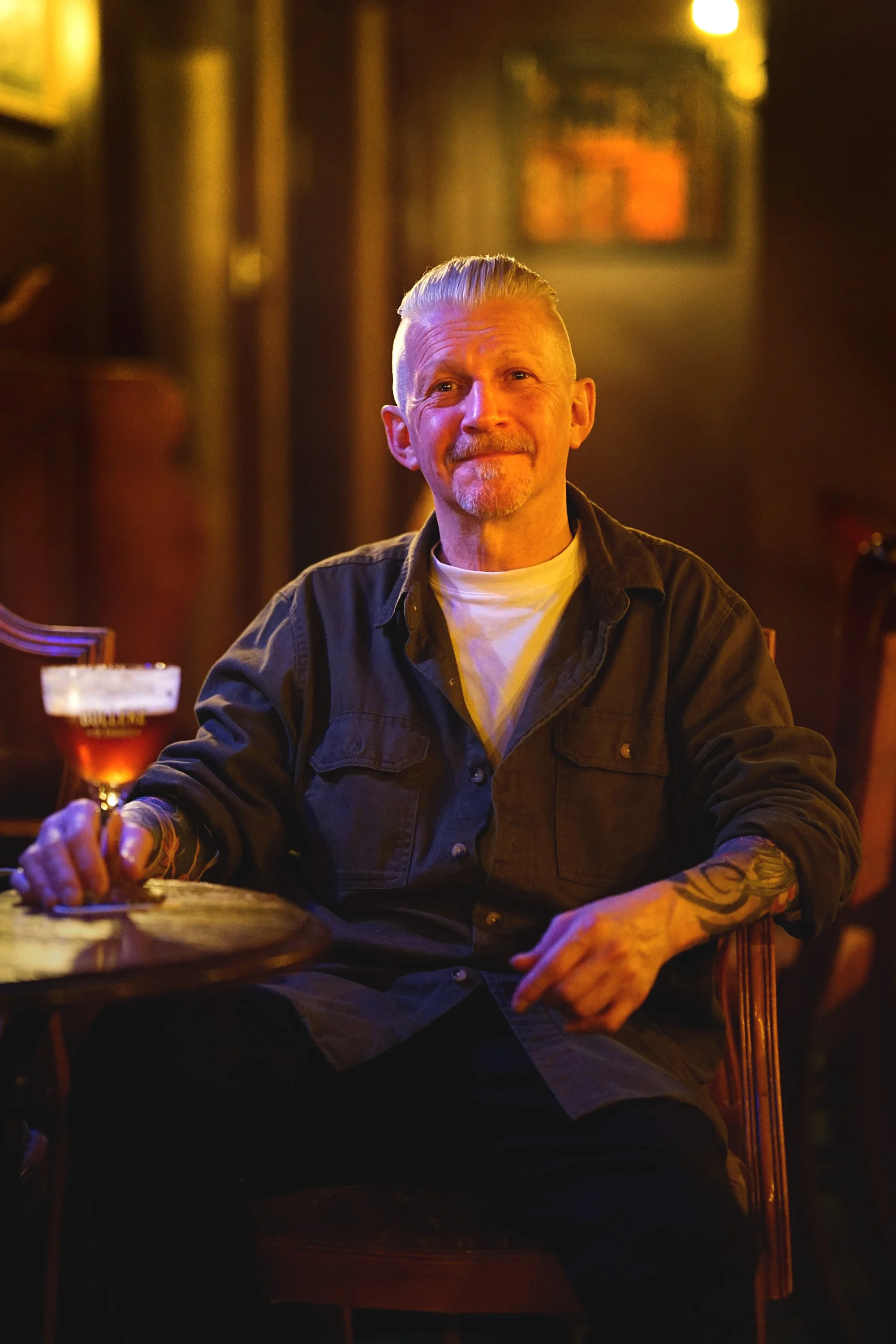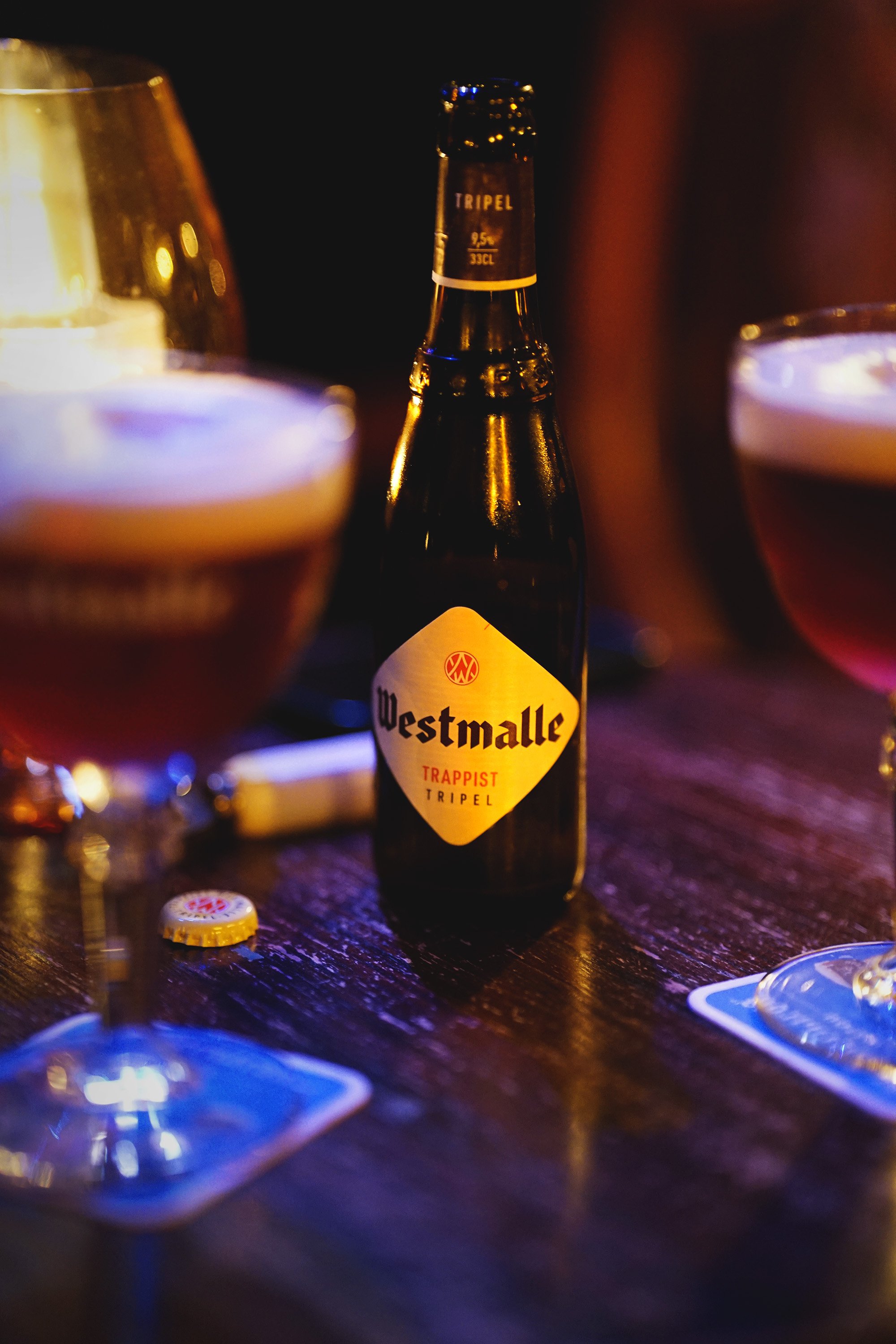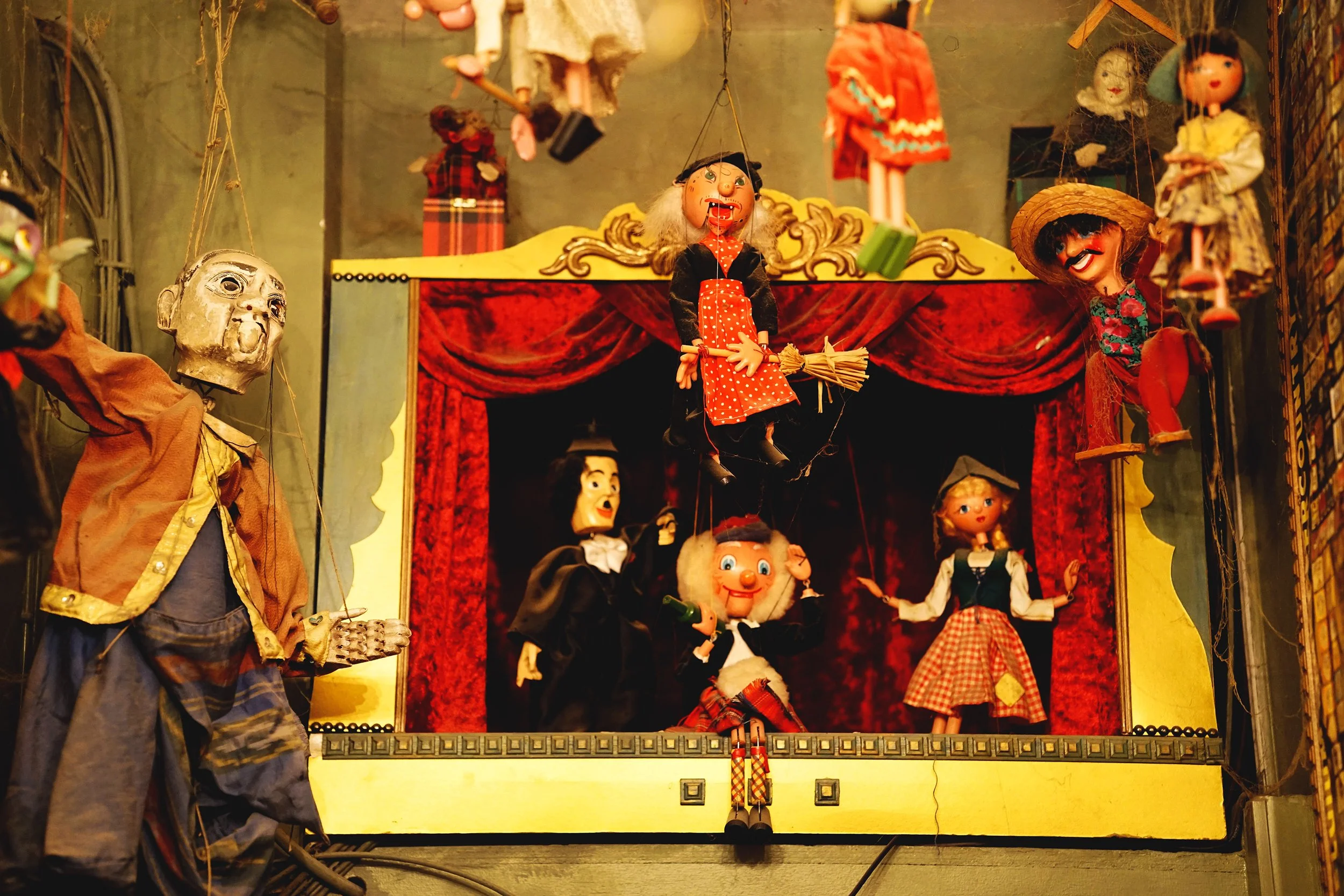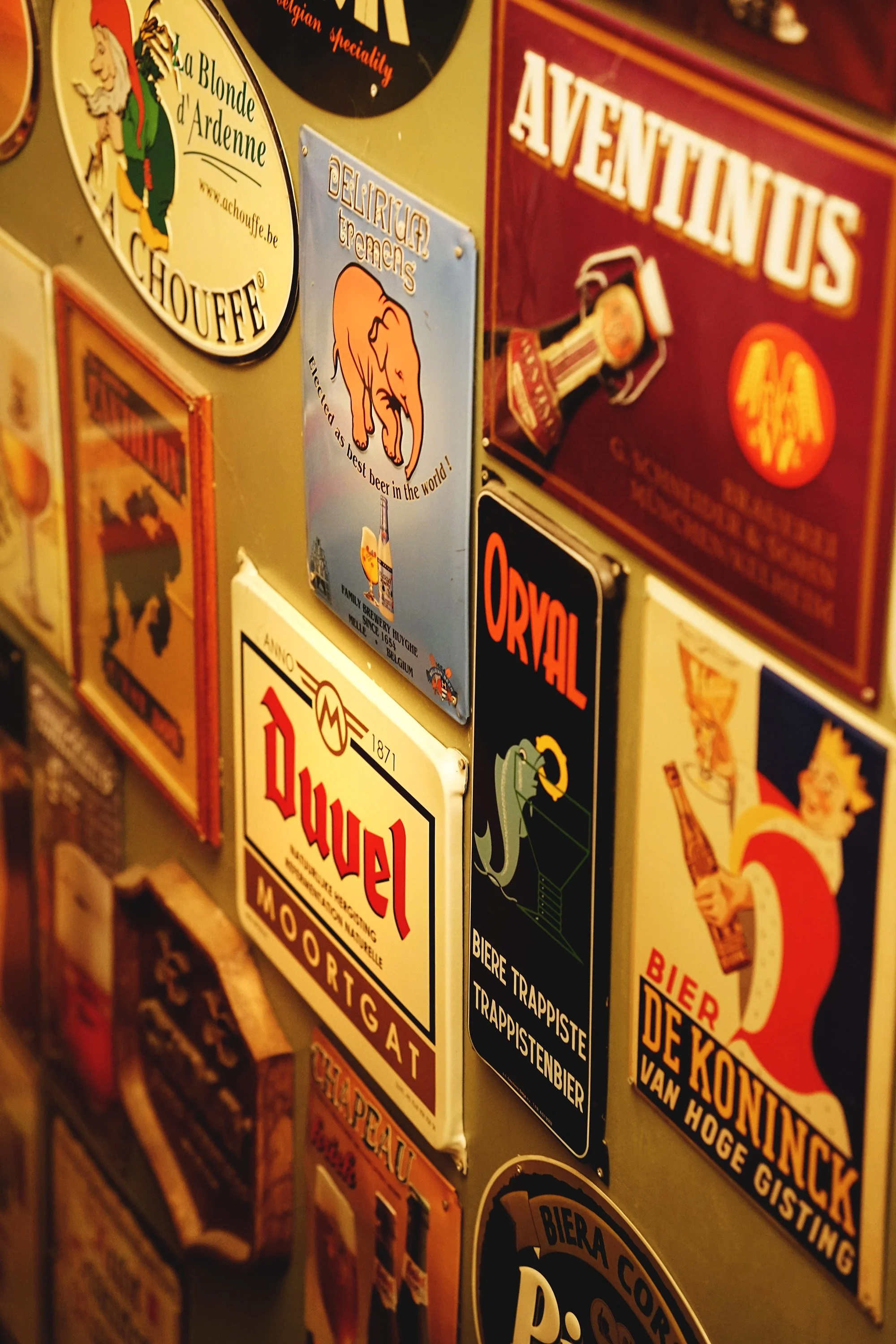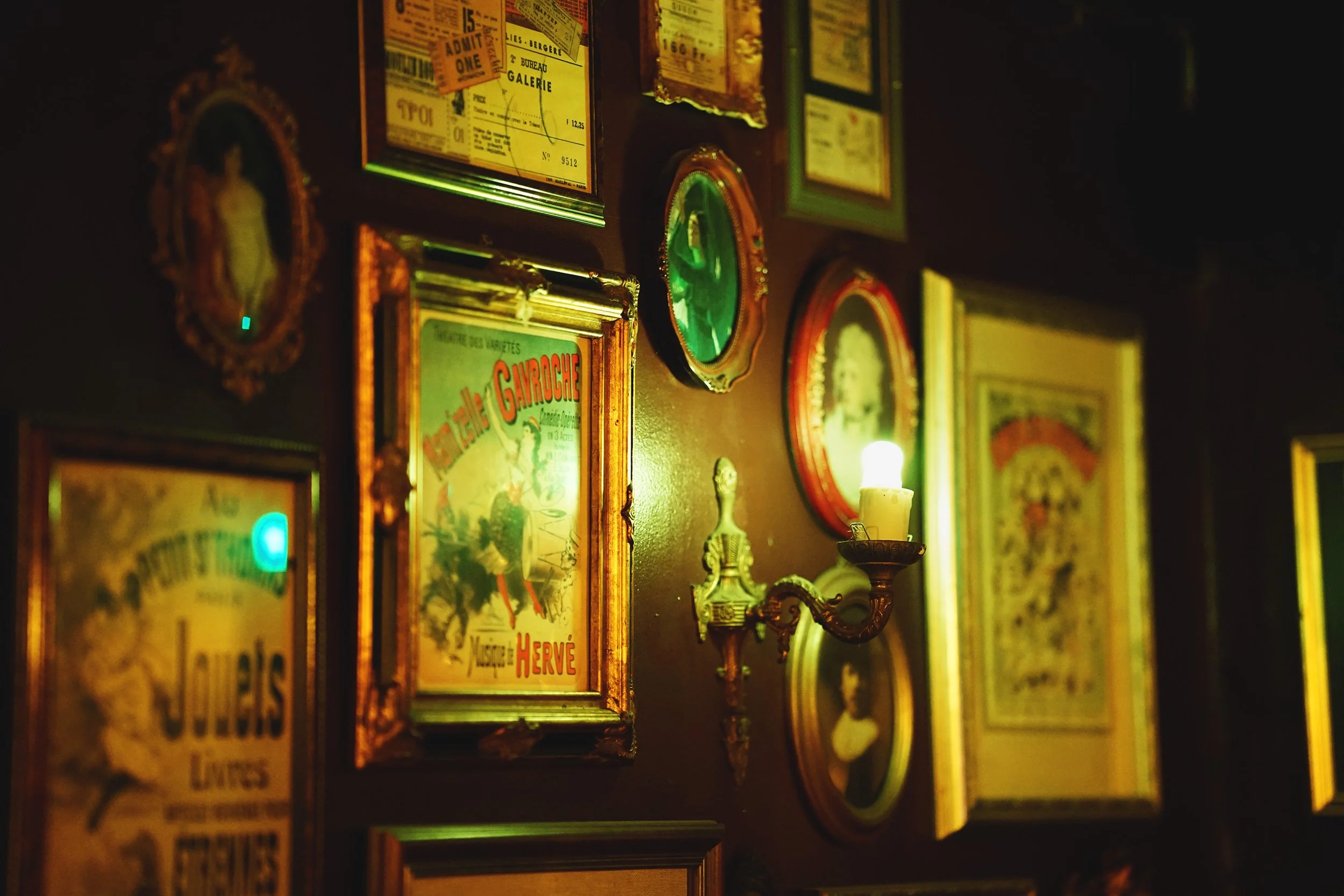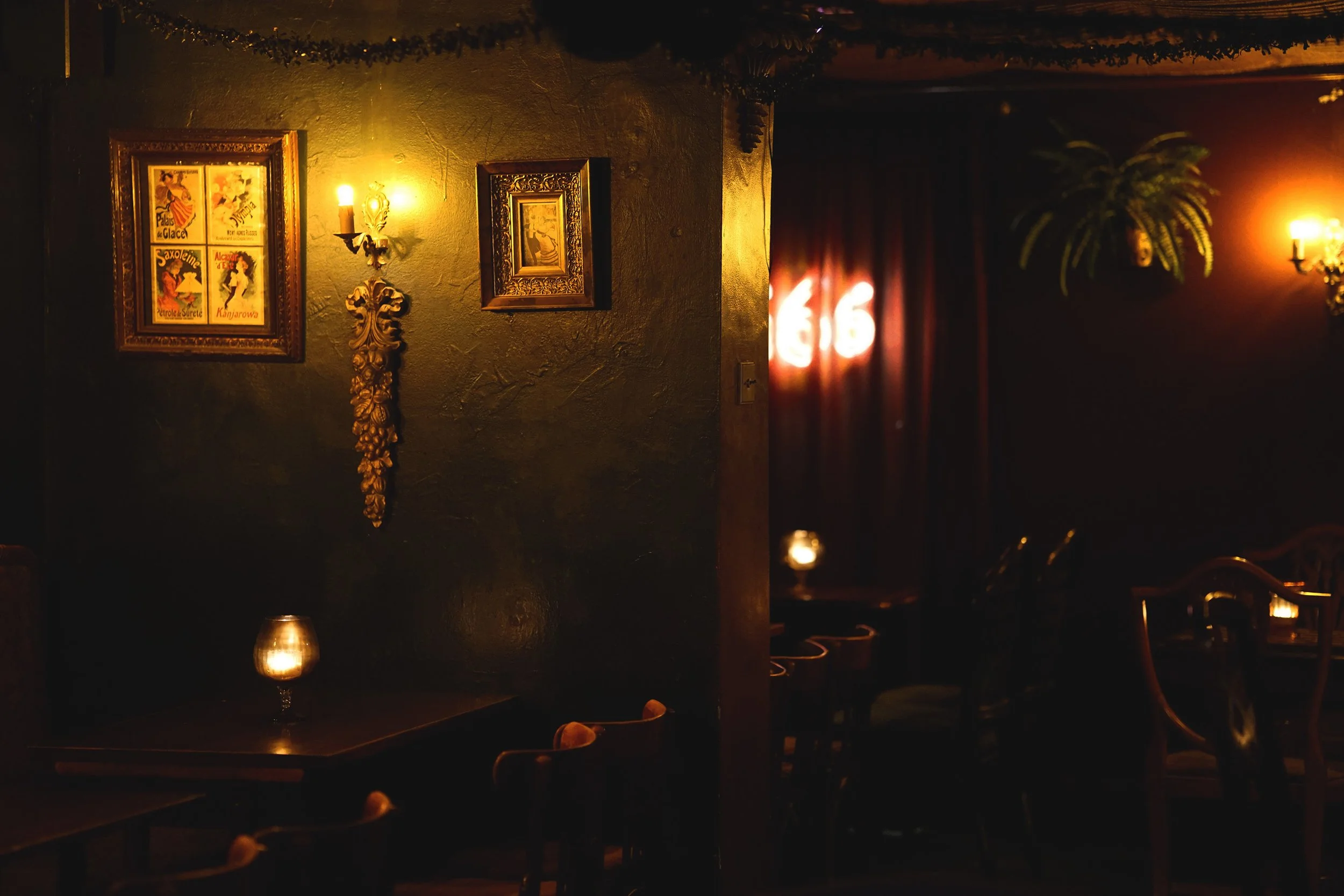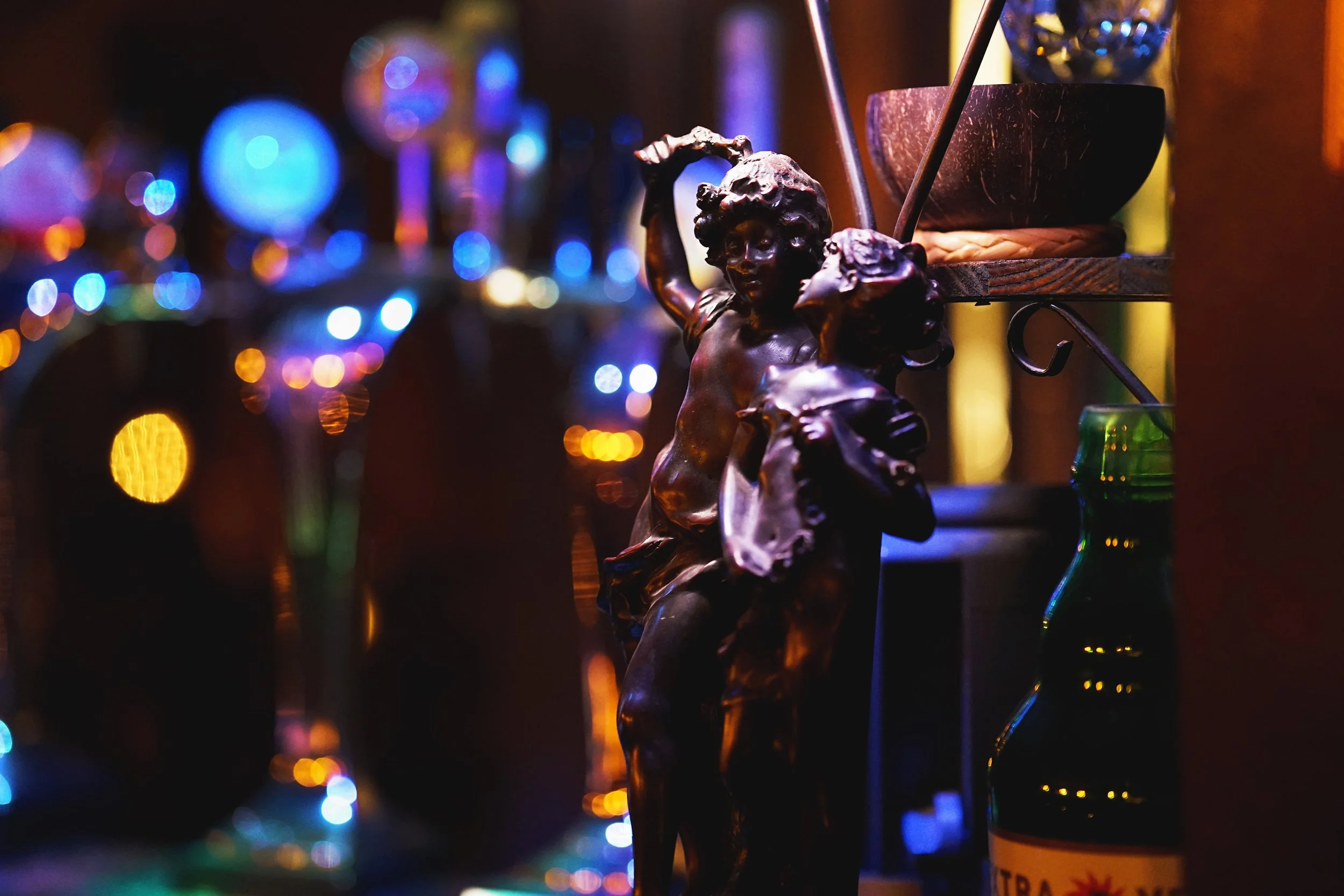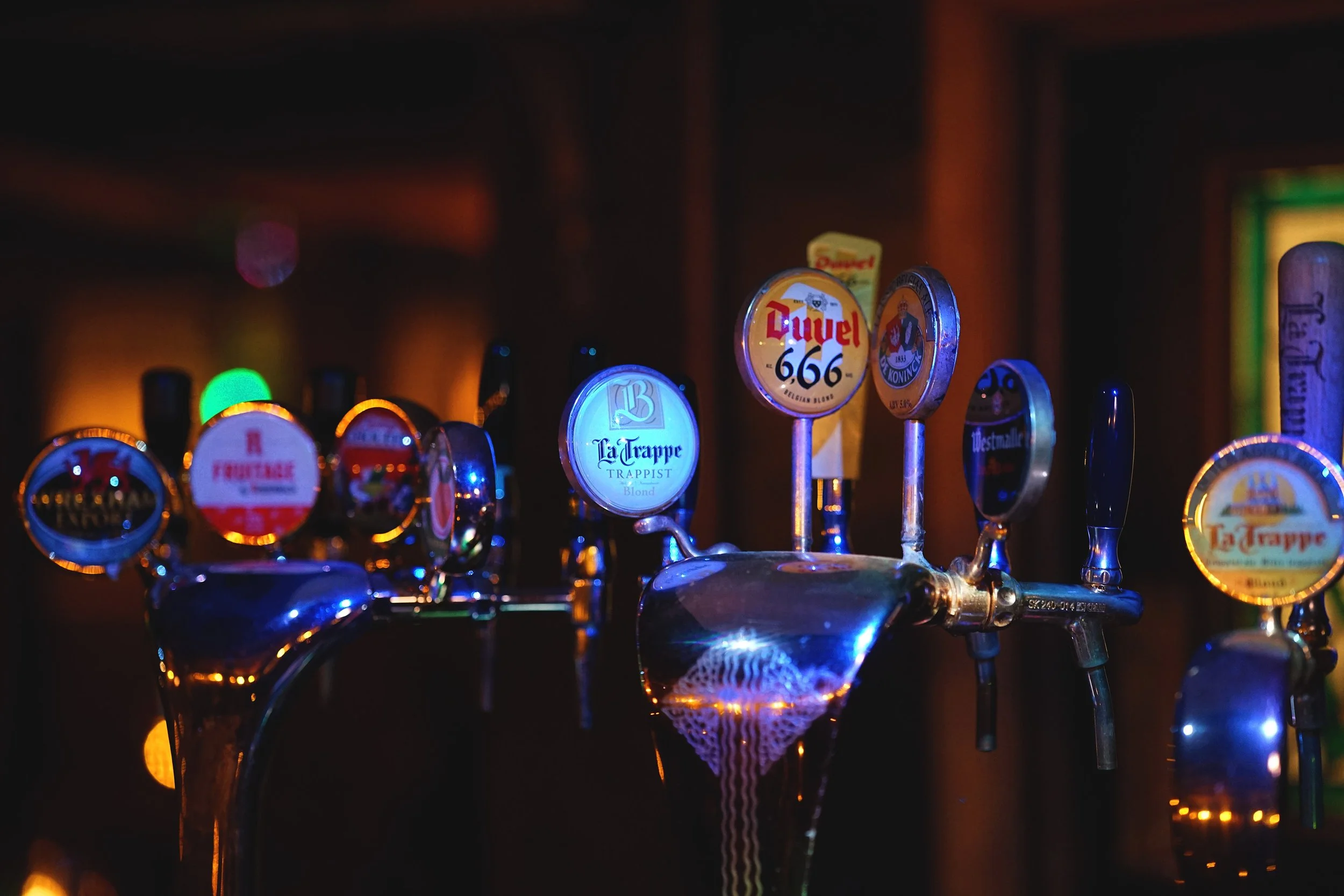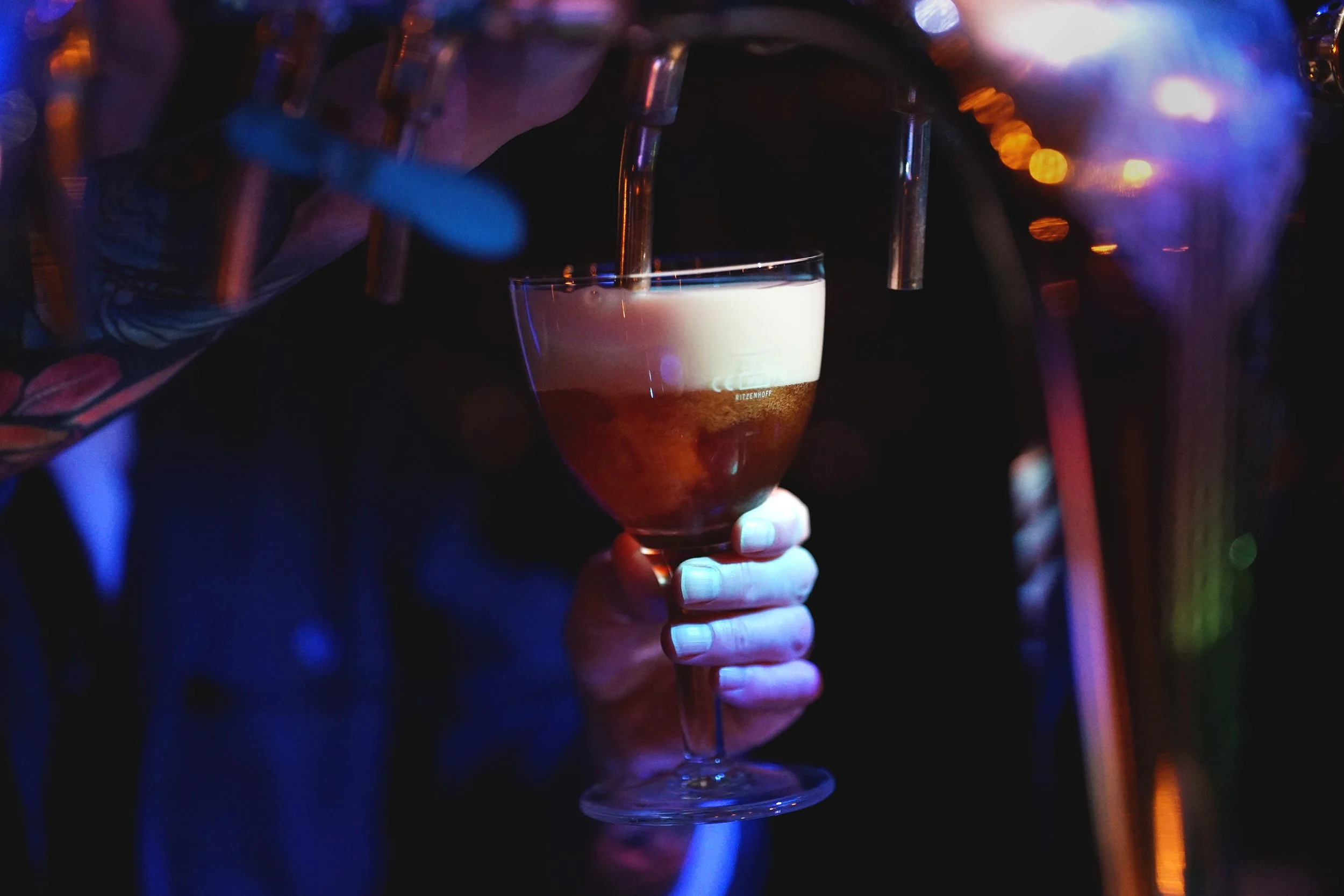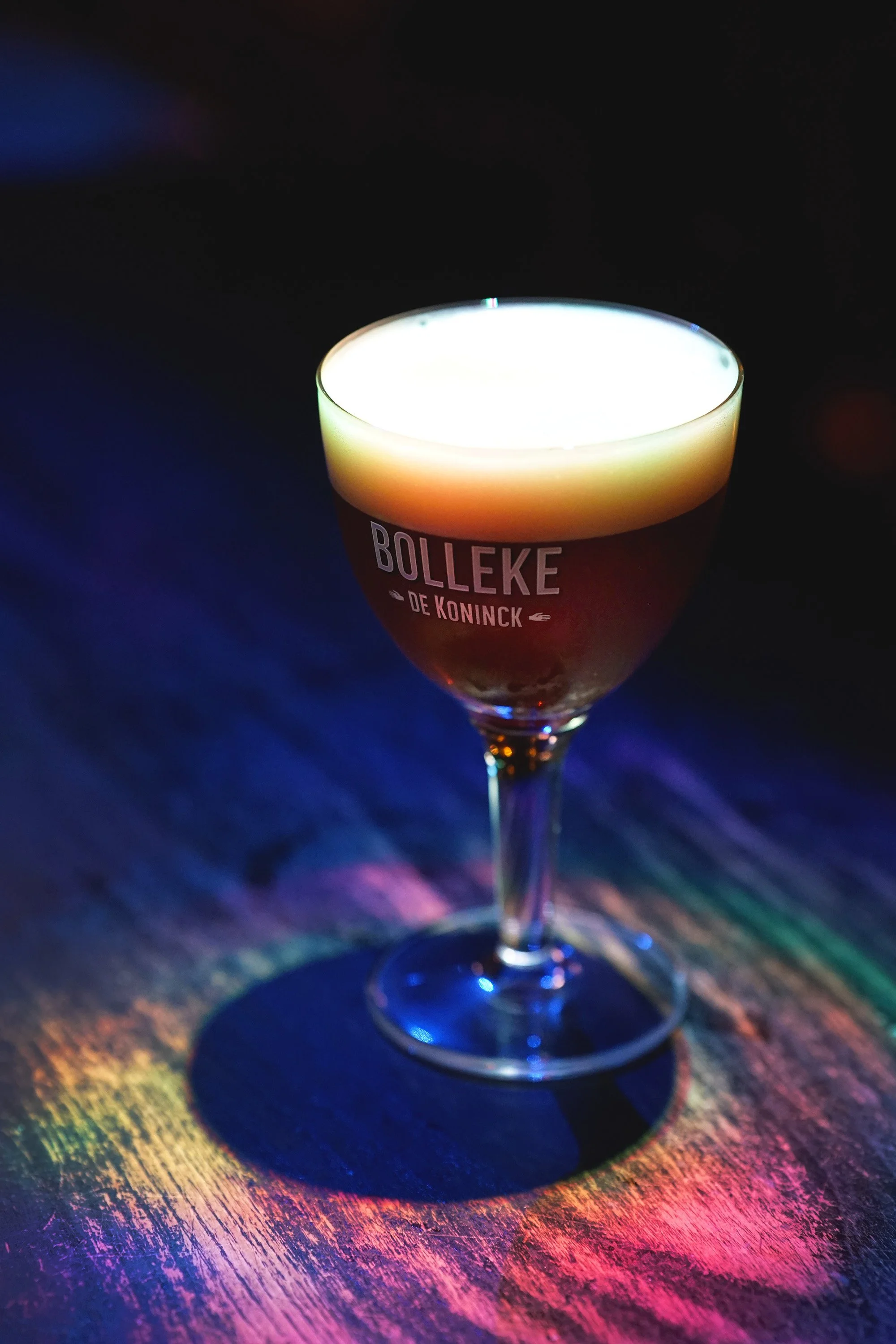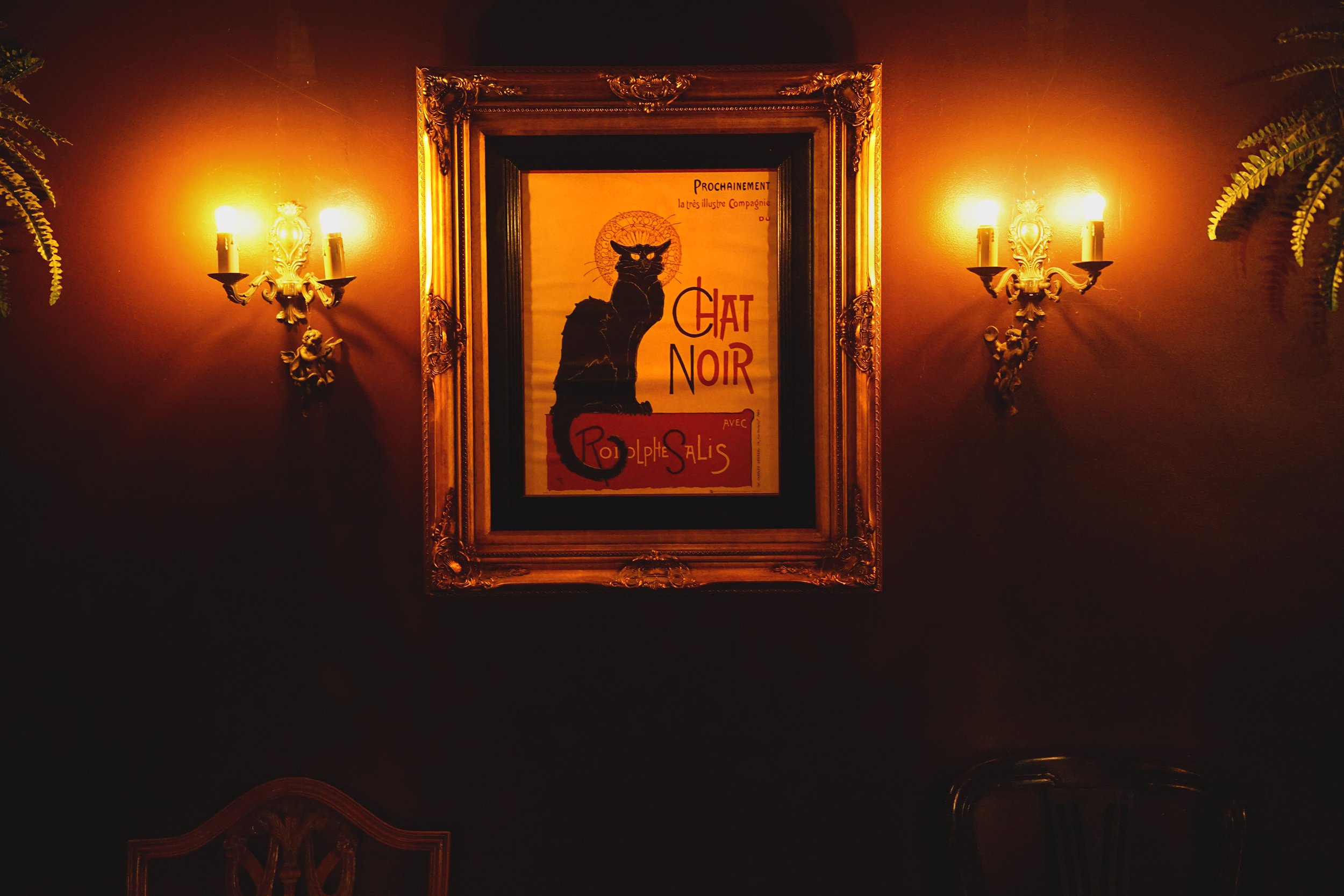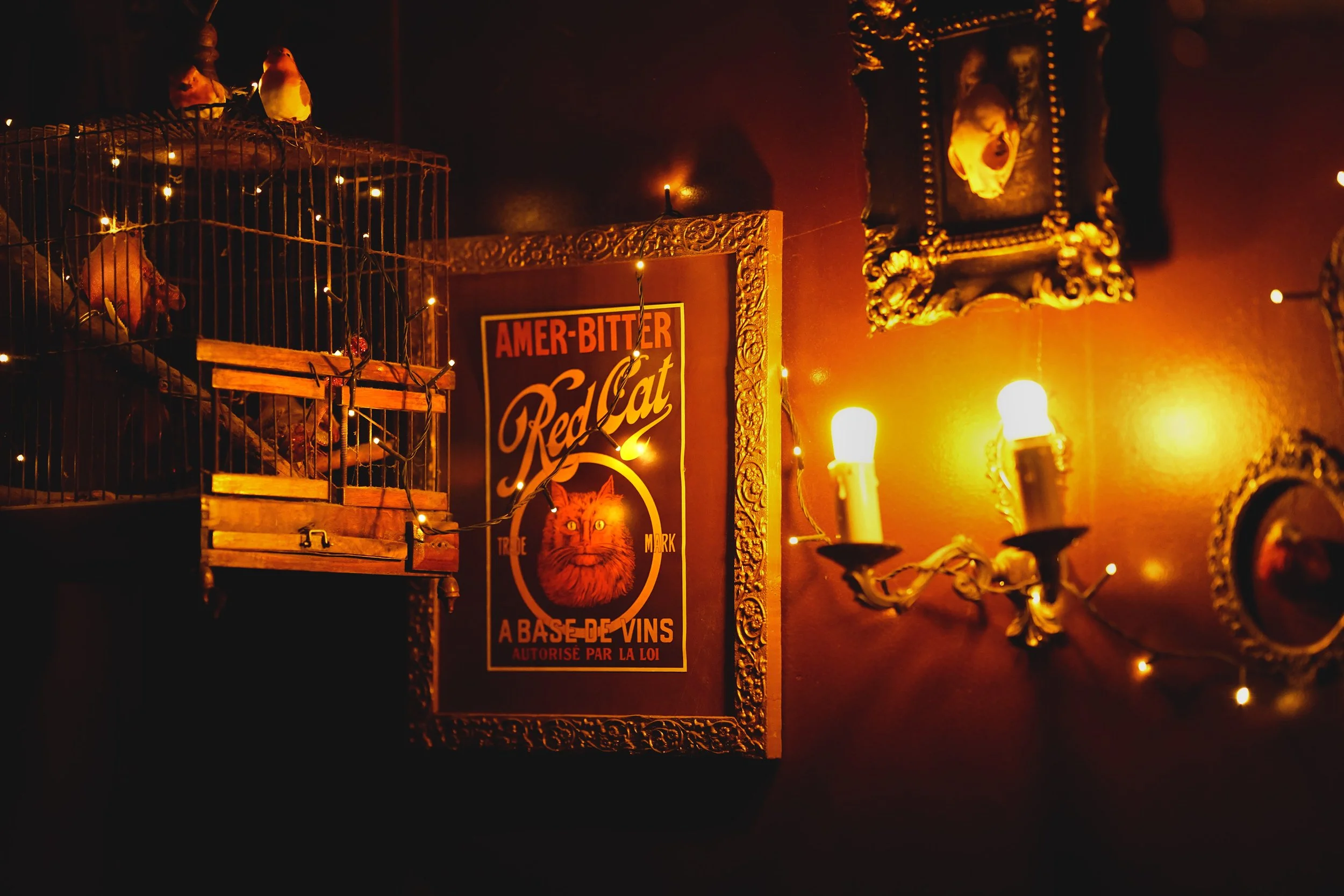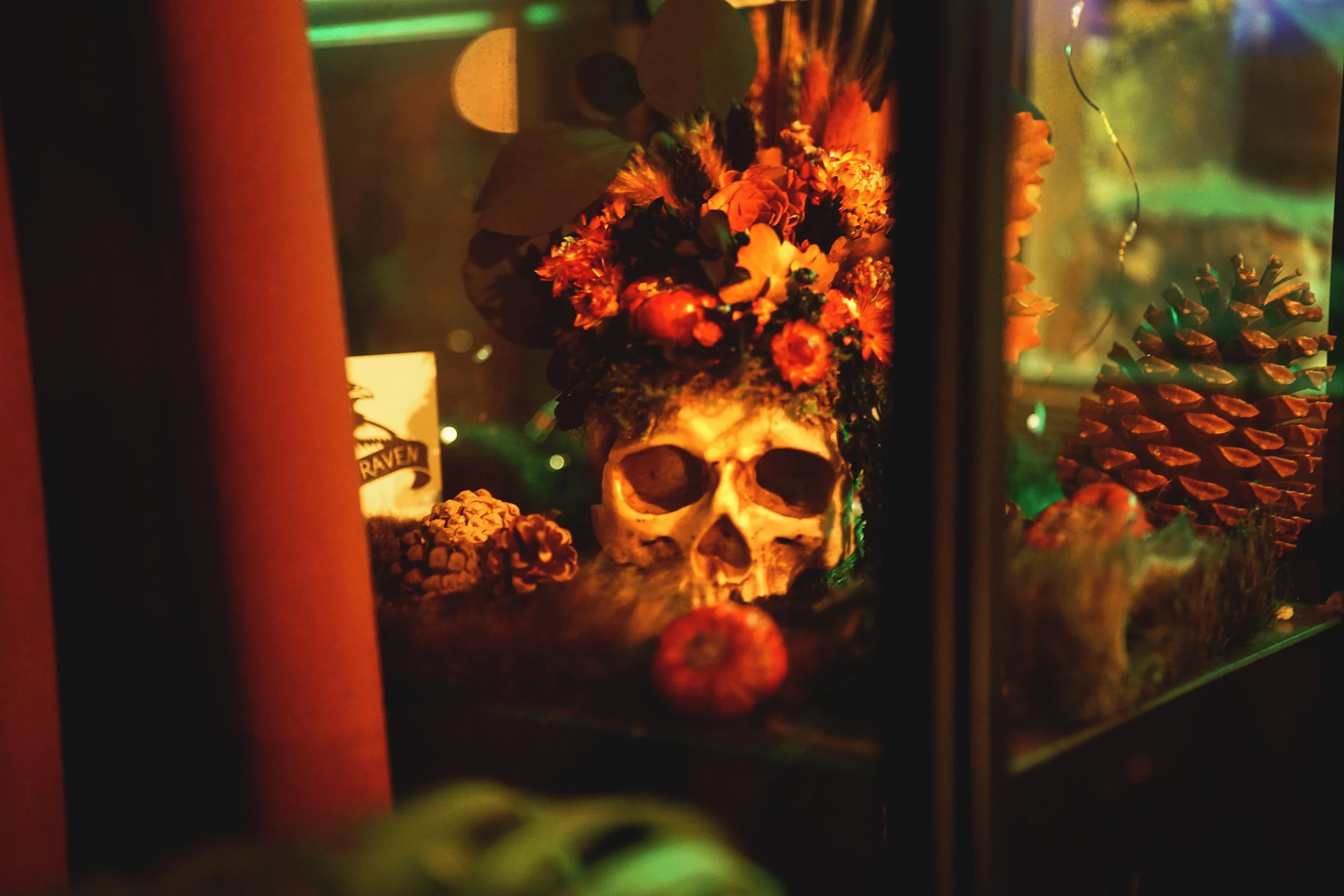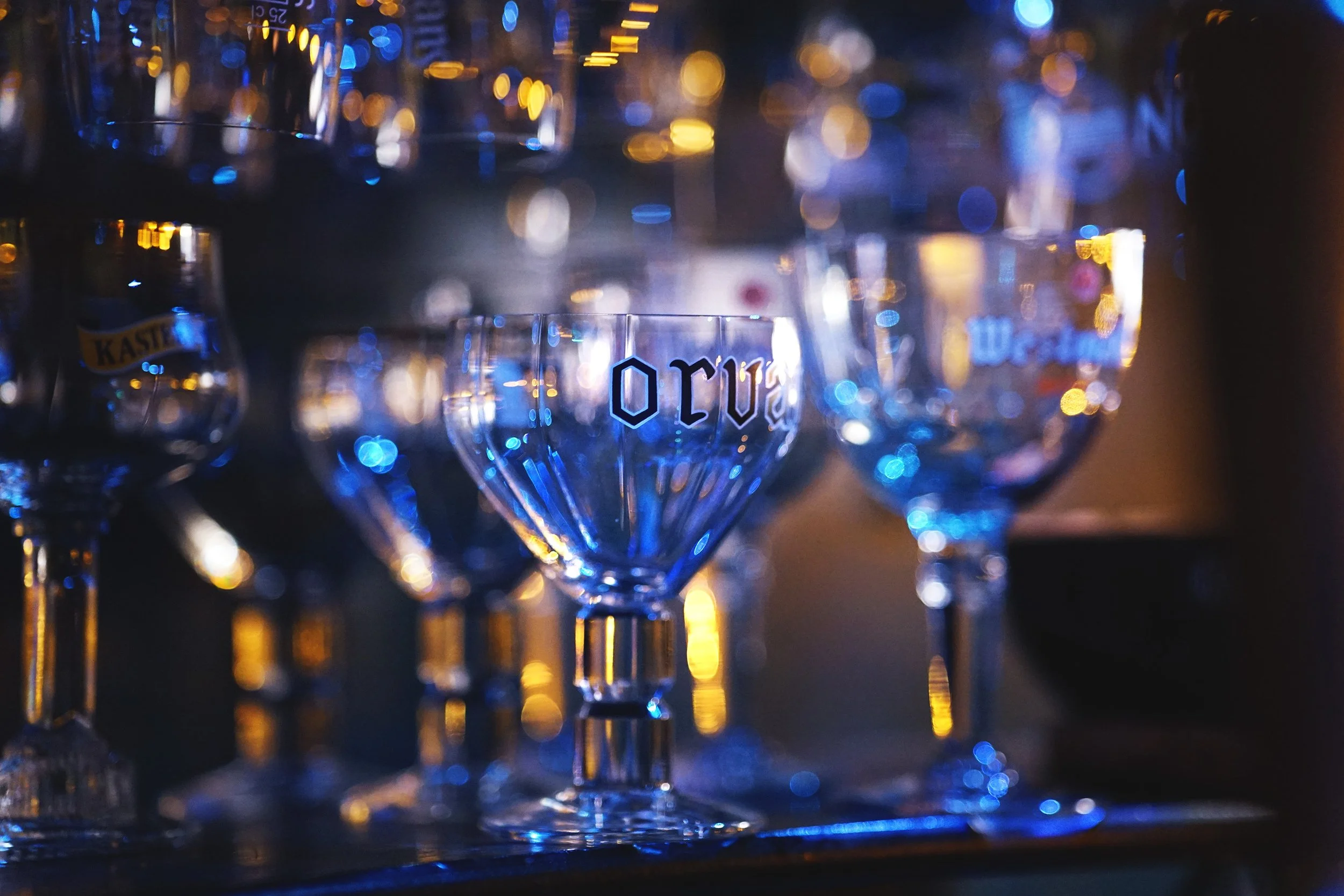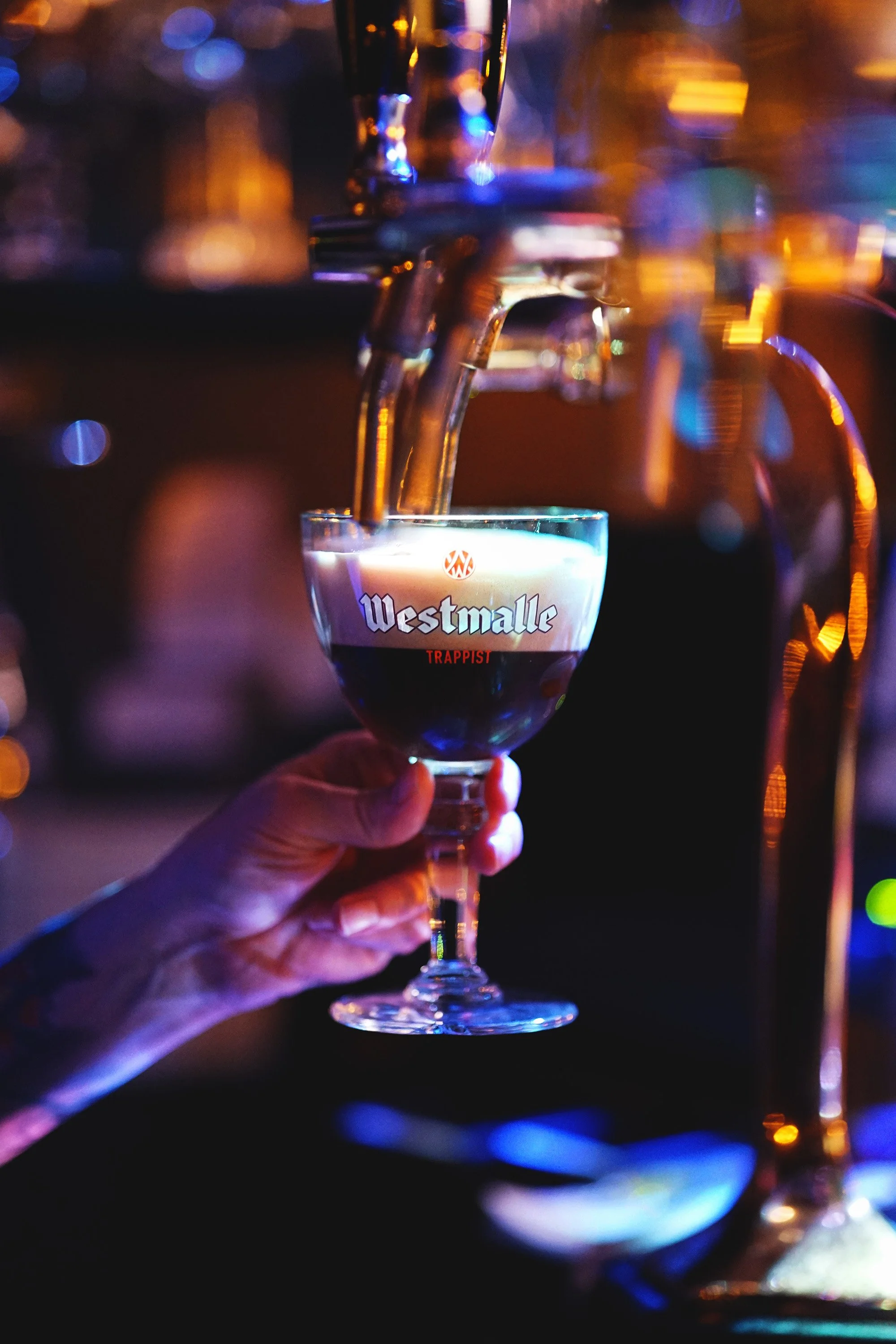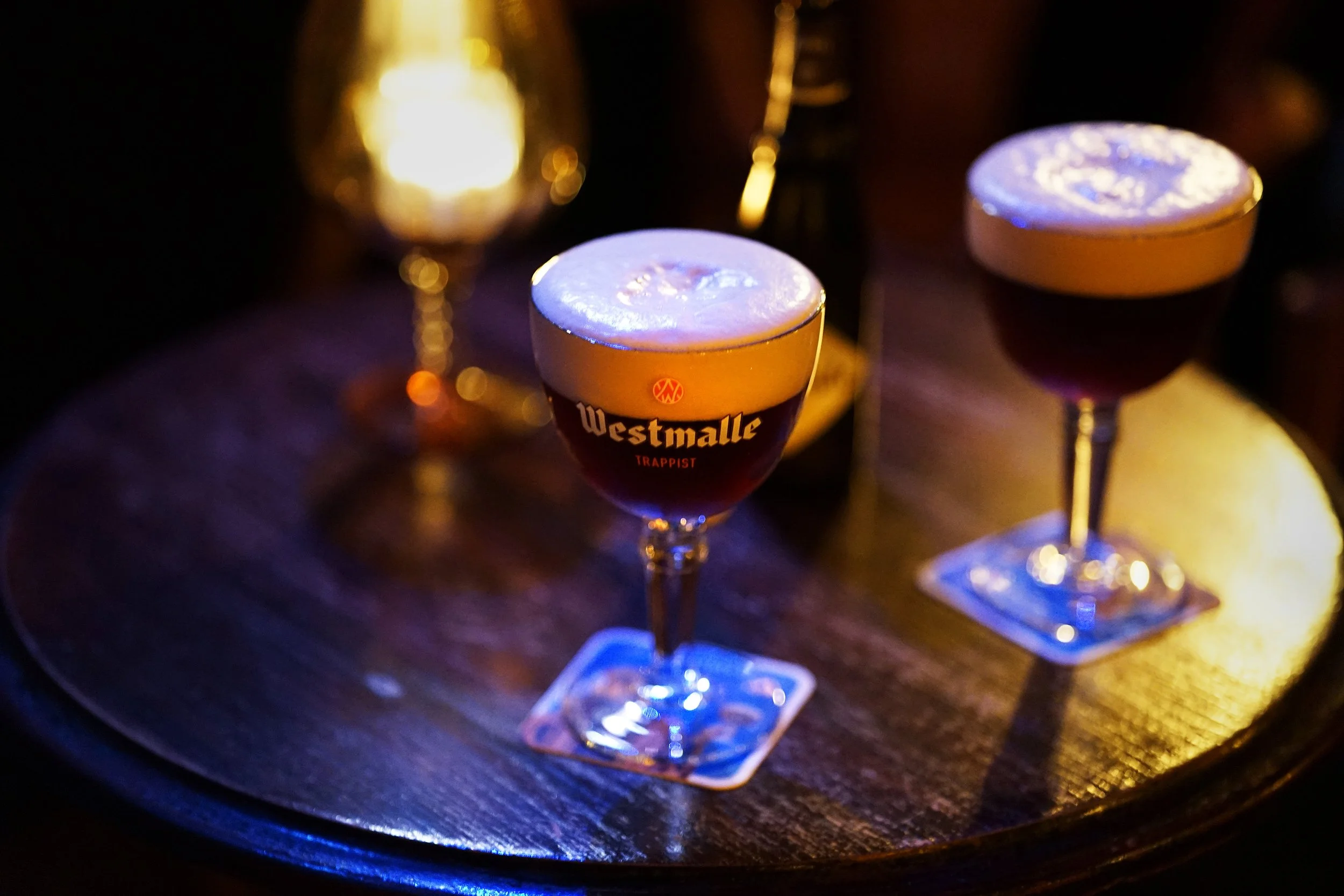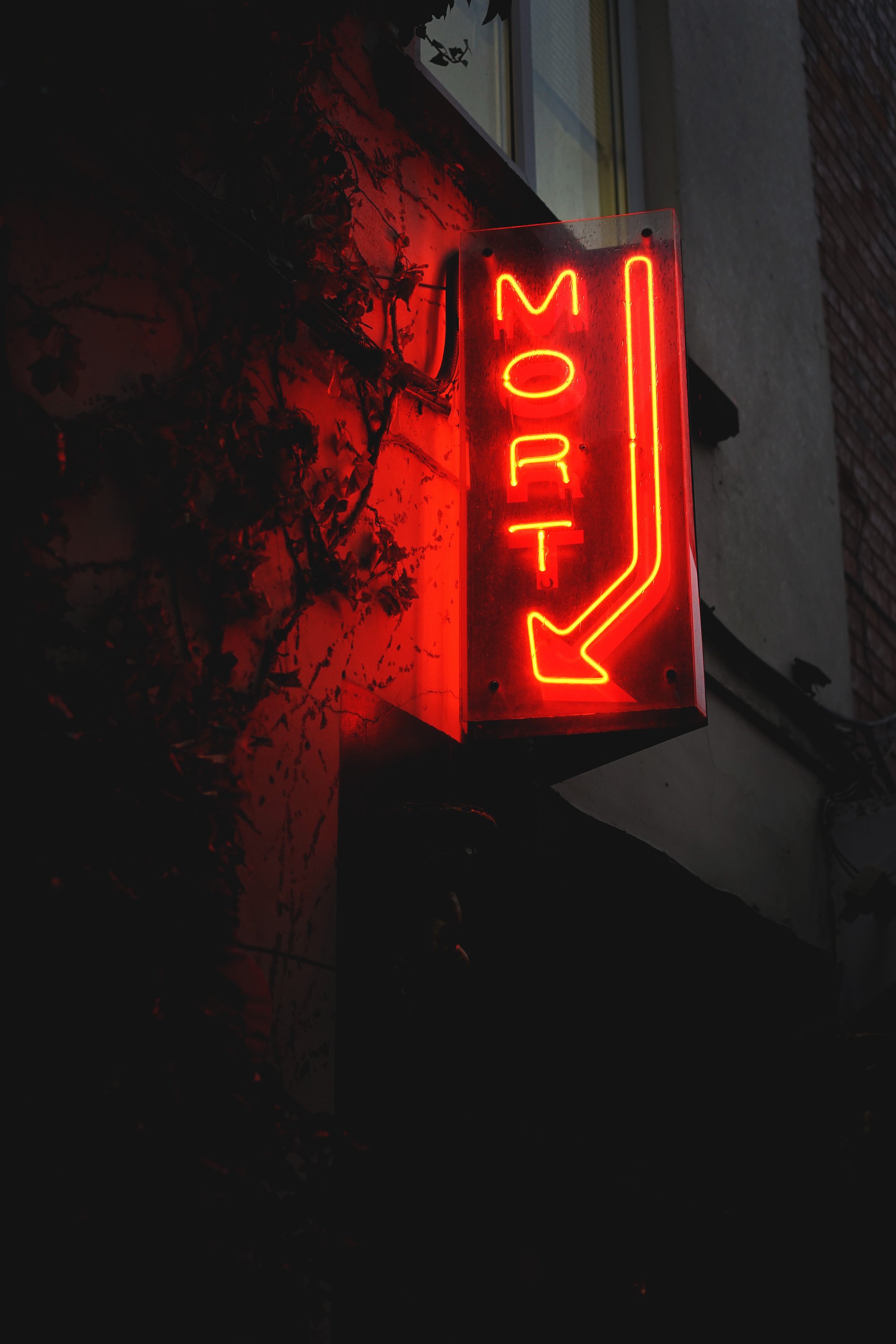Much Against Everyone’s Advice — Mort Subite in Altrincham, Greater Manchester
Greenwood Street, at the centre of the Greater Manchester suburb of Altrincham, is the beating heart of the market town’s revival.
On any given evening the air is filled with the smell of wood-fired dough from Market House, where punters queue for sourdough pizzas and artisanal pies. Across the street, Prosecco corks pop at Con Club—housed in the former Working Men's Conservative Club—where the menu reads like an early-noughties greatest hits: spicy tuna rolls alongside chicken tikka flatbreads and Cajun-style burgers. Pints flow at the imaginatively named Belgian Bar, and at Kennedy's, the Irish pub that's heaving on Friday nights, with revellers soaking up live music while enjoying six shots of Baby Guinness for twenty quid.
As for Mort Subite—another Belgian bar in a basement down an alleyway behind the street—unlike its louder, sometimes brasher neighbours, finding it is half the point.
Slow your pace to a stroll and you’ll give yourself enough time to spot, and hopefully be lured in by the neon-red sign that simply reads ‘MORT’, with a parallel arrow pointing down towards a solitary door. Look closer still and you’ll find a sign reading: “Mort Subite or ‘Sudden Death’—difficult to find, but perhaps more difficult to leave.”
Photography by Matthew Curtis
Descending into this subterranean drinking den, the noise of Greenwood Street vanishes—it’s quieter, broodier, and more intimate. “I've lost hours of time in there,” says Chris Bardsley, who runs Altrincham beer spots The Beacon on Shaw’s Road and Batch Bottlestore in King’s Court. “You're in there, you don't see the outside world, you're just caught in it.”
On entering the grotto-like room, you pass tin signs from respected Belgian breweries like Tripel Karmeliet, Kasteel, and La Chouffe, before descending beneath a golden chandelier. Already, there’s a notion of grandeur to match the promise of debauchery to come—all while puppets dangle from the ceiling lending an almost sinister mystique.
“If you dropped an Irish [themed] bar in Ireland, it’d look weird,” Chris says. “But Mort Subite, you drop it in Belgium and it would fit like a glove.”
I meet the owner, Wyn Rhys, a middle-aged Welshman who wears a short beard and a slick sweep of silvery hair. As a former regular at ‘Morts’—as it has been known to myself and friends since the late noughties—I’ve spent many evenings discussing drinking culture, food, politics and music with Rhys, but this was the first time I would listen to him tell his whole story.
As I arrive, he pours me a Slaapmutske Blond—recently brought in on draught. The golden beer is crowned with a pillowy, mousse-like head, served in a glass stamped with the brewery’s name and logo, set neatly on a matching beer mat. Taking a sip, I find myself reminded of the moment I first truly enjoyed a beer. It was De Koninck Spéciale (today known as Bolleke,) and it was in this same room—experiencing a balance of sweetness and bitterness that everyday lagers, say Stella or Peroni, don’t come close to.
““You’re in there, you don’t see the outside world, you’re just caught in it.””
Looking around, I find myself beguiled by the decor once again. The lighting is low but warm, the tables and chairs all dark wood. There’s mirrors, stained-glass windows, framed vintage Belgian posters and portraits of aristocratic men in silly wigs—and then, in what feels like a total thematic departure—a cartoonish cat sculpture, and a light projection of a purple skull on the carpet floor.
On the face of it, the bric-a-brac interiors look thrown together, but Wyn always had a vision. “My real passion was always some of the bars in Brussels,” he tells me, while explaining how the design for Mort Subite took a departure from his first Belgian beer bar, Le Trappiste. The latter took cues from classic Belgian bruin cafés—notably t’ ’Brugs Beertje in Bruges and De Dulle Griet in Ghent—with Mort Subite building on their cozy sensibility, but shifting the lens. One bar in particular served as a frame. “I think one of my top five bars in the world is [Le] Cirio,” he says. “It's inspired by Italian Art Nouveau, [but] you couldn’t recreate it.”
A well-travelled man, Wyn’s references are extensive, but with Mort Subite (which—it’s important to say—is not designed to imitate the iconic Brussels bar of the same name,) that same sense of inimitability is what he may have sought out to achieve. Even the bounded menus, for instance, are unforgettable—assembled from recycled New Caxton Encyclopedias and printed with the same charming Art Nouveau font. The beer list is roughly 80% Belgian, but there are smaller sections, such as Germany, Netherlands, and Great Britain. Guinness Original isn’t available, but Guinness Special Export—at its hefty 8% ABV—is.
All of these idiosyncrasies might suggest Mort Subite exists apart from its surroundings, but Wyn disputes this. While Altrincham Market and its popular food hall is credited with making the town a destination, Rhys has another theory. “You could argue the market and places like that wouldn’t have existed without Le Trappiste,” he tells me, “because they saw what could be done.”
***
The story of the food and drink revolution in Altrincham might begin with Belgian beer—which began with Le Trappiste in 2002, and in 2022, reached its peak with the addition of another Belgian-themed bar, Bier Zot (now closed.) It’s not exactly a measurable premise, but one thing that’s hard to deny is that Belgian beer is an unusually prominent phenomenon in such a small town.
“You’d very rarely find a place that has two Belgian bars,” Chris says. “[Or] even more than one. And at one point there were three.”
To grasp the extraordinariness of this, some context is needed. I reached out to Tim Webb, author of The Good Beer Guide Belgium, who spoke to me from Hillhead Farm, his Devon-based bed and breakfast, where guests can order De Ranke and De La Senne beers. Webb—alongside the late beer and whisky writer Michael Jackson, who penned Great Beers of Belgium—has been pivotal in raising Belgian beer's status in the UK.
Belgium has long been what Tim calls the “mothership of craft brewing.” Way before the UK craft beer boom that began in the late 2000s, small, family-run Belgian breweries were producing “an astonishingly broad range of beers,” unlike the largely commoditised lagers and cask ales common in the UK.
“There are tiny towns like Teuven, just south of Maastricht on the Belgian side of the border,” Tim says. “with four or five major beer bars selling beers from small breweries all around Belgium. It’s just the way it’s grown up.” This pattern, he suggests, explains places like Altrincham—Belgian beer specialists seem to succeed best in small towns.
But how, exactly, did Altrincham become the British Tervuren?
““Altrincham itself has become a destination, whereas at one time, Mort Subite itself was a destination.””
Like many Belgian beer aficionados, Wyn was a cask ale drinker who first discovered Belgian beer in the late 1980s. Through travels in the Netherlands and Bruges, he discovered Hoegaarden, Leffe Blonde, and Duvel for the first time. Having ditched a career as a psychology lecturer at Bolton University, he became Whitbread’s cask ale advisor in the early 1990s, which eventually led to him opening the The Old Market Tavern in 1997, which Wyn says was the first pub in Altrincham to introduce Belgian beers alongside cask ales. Frustrated by tenancy restrictions, Wyn went on to open Le Trappiste in 2002, offering the first alternative beyond the traditional pub.
“It was like a ghost town for drinking, and all there was was a load of grotty pubs,” he tells me.
“[We offered] Belgian beer only, Belgian music, Belgian everything, table service, and that was it,” Wyn says. At its height it offered around 100 Belgian beers, with 13 on draft, and was nominated for a Manchester City Life Award in 2003. “That was the first time City Life Awards spread out of the city centre.”
He puts Le Trappiste’s success down to its local feel, and ability to offer something different. “Wine bars became too pretentious, so people wanted something in between a pub, in between a wine bar, so the obvious way to go was a European style cafe-style bar.”
Having sold it in 2006 to focus on importing a range of Belgian beers, Rhys felt he had already achieved one of his goals. “Le Trappiste was a social experiment to see if I could change the drinking culture,” he says, “and I did.” Meanwhile the bar faltered under new ownership, eventually being reopened under new management as The Belgian Bar in 2012.
He opened Mort Subite in 2007, after discovering the basement space underneath a restaurant called the Fat Loaf. “I thought this would be perfect, it's an underground bar, it's an absolutely perfect location for something different, it always looks like it's going to be night, it can be easily like a nightclub,” he says.
Where Le Trappiste reshaped the palates of local beer drinkers, Mort Subite offered a new path for this drinking culture to evolve. Like many regulars, I found myself seduced as much by the inimitable mood and bacchanal allure of the place as by the beer itself—and it sparked in me not only a taste for Belgian beer, but a desire to explore its vastness.
For Wyn, there was a deliberate attempt to create a certain atmosphere. “People felt comfortable, safe,” he says, adding that they have “zero tolerance for idiots, and offer table service, like a restaurant.”
For the beer-curious, the appeal was the extensive menu of imported Belgian beers, and the multiple quality beers on draught—with De Koninck a mainstay, and other taps rotating. If you want lager, it’s Wrexham Export, in a nod to his Welsh origins. For Chris Bardsley, Belgian beer was a gateway, and he suggests most of the town’s local beer-lovers “popped their beer cherry by drinking Belgian beers,” in venues like Le Trappiste, and later Mort Subite.
Chris's beer career began managing Pi, a modern beer bar that formerly had locations in Chorlton and Liverpool in addition to Altrincham. Today he runs The Beacon in the former Pi location, with business partner Will Brown. This follows their success with Batch—a craft beer bar that stocks over 300 beers, many of them Belgian. At The Beacon, which he calls a “pure pint destination,” there's just Timmermans and Orval left, “most of which are drunk by Wyn” he jokes.
Both of these venues are part of what is now a thriving—and some might say peculiarly diverse—beer scene in Altrincham. Beyond Kennedy’s, Beacon, Batch Bottlestore, The Belgian Beer and Mort Subite, it includes: Libero a tiny, independent sports bar serving only craft beer; Jack in the Box—operated by Manchester brewery Blackjack with ten plus taps, operating within the market itself; craft beer pub Cheshire Tap, and Hong Kong-inspired pub Harcourt.
“Altrincham’s Belgian bars feel like an absolute fixture,” Chris says. “You hear of bars coming and going all the time and it's always sad when it happens… but if someone turned around to me and said, oh, Belgian bar's closing, or Mort Subite is closing, I'd be fucking gobsmacked.”
Still, the town is changing. “Altrincham itself has become a destination, whereas at one time, Mort Subite itself was a destination,” Wyn says.
A decade ago, you'd stumble out of Mort Subite to small town silence. Today, it’s clouds of cigarette smoke, raucous folk music from Kennedy's and the Con Club’s feverish purple light. Was the purple skull projection inside Morts a subtle wink to that? Maybe not, but having once again just about managed to leave this bar—where little has changed—the urge to return felt stronger than ever.


